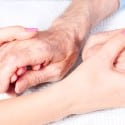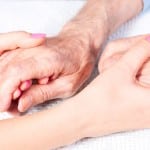When you notice that an elderly loved one has become less self-reliant, you may start to wonder if they need help. When your dad stops shaving or your mother continues to let the mail pile up, you may offer to help out with household duties. However, as your loved ones continue to forget or simply aren’t mobile enough to do things they used to, it can put significant strain on your daily life. You need to think about elder care, but when is it time to find help?
But, you don’t have to care for your loved ones by yourself: It’s okay to ask for help. This doesn’t necessarily mean sending them to a nursing home, but it can mean hiring someone to help in running errands, doing the dishes, paying the bills, and performing other tasks you may not have the time or capacity to help with. Here are five signs its time to find professional help for your elderly loved ones.
Forgetfulness
It’s common for elderly individuals to become more forgetful as they age, even if they don’t have dementia. They might forget to pick up the mail, send out checks for their bills, attend important appointments, or take medications. When you can’t be there for them throughout the day, it can be beneficial to hire someone to help attend to these needs.
Unexplained Bruising
If you notice bruising on an elderly loved one, it’s likely that they experienced a fall. They may be in denial and tell you that everything is alright, but this can be a sign of a bigger problem, especially if they don’t remember how they acquired the bruises. For instance, it may mean that they’re losing some of their mobility, which caused them to fall.
The proper professional can aid your loved ones in balance and mobility to reduce the risk of falls and injuries like this.
Poor Hygiene
There are several things you’ll want to watch out for when it comes to poor hygiene. Some of these issues include:
- Unpleasant body odor
- Wrinkled or smelly clothing
- Smell of urine in the house
If you notice any of these things, it doesn’t mean your loved one has become lazy and simply doesn’t want to clean themselves anymore. It may mean that they’ve become forgetful, or that they’ve lost their mobility and can’t shower, do the laundry, or clean up.
With a little bit of help, you can ensure their body, clothing, and house remain clean. This reduces the chance of illness, sores, and other problems.
Poor Diet or Weight Loss
If you notice your loved one losing weight, it can mean many things, from an undiagnosed medical condition to the inability to cook for themselves anymore. Either way, weight loss can be a bad sign, especially if the individual was at a healthy weight to begin with. If you notice your loved one eating poorly because they can’t cook for themselves, that’s also not a good sign, as it can lead to further medical complications in the future.
Start by getting your loved one to the doctor to make sure there isn’t an underlying medical issue. If everything seems fine, but you can’t be around daily to cook, consider hiring someone who can help out with the cooking. You might also consider consulting a dietician who can develop a personalized meal plan for your loved one.
Driving Patterns
The ability to drive yourself can be an unbelievably personal matter for Americans. For some, it’s a rite of passage and how we define ourselves in this land of freedom. For seniors, this can be a very sensitive topic. But it’s also an incredibly important safety topic for them and for everyone else on the road. Read our in-depth article on assessing senior driving.
Elder Care: When Is It Time to Find Help? Don’t Be Afraid If It Is Time
These signs are just the tip of the iceberg, but they are more common indications that the elderly may need help around the house. Don’t be afraid to ask for help, especially when you’re unable to be as attentive as your loved one needs. Here’s an often-helpful article on whether to choose a retirement home or in-home care.
Call us today at 1-800-626-4829 or contact us here for details.

